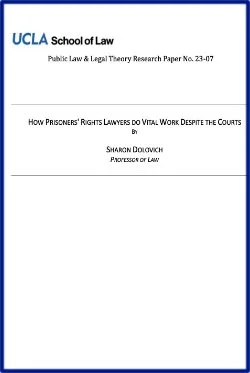By Joseph Hennessy
Mass incarceration is a uniquely American phenomenon. With roots in chattel slavery, modern mass incarceration truly exploded in the latter half of the 20th Century. As Reagan-era politicians advocated for fiscal conservatism on the one hand and heavy-handed responses to crime on the other, private prison pioneers saw an opportunity to derive profit from society’s most vulnerable. Today, private prisons house as much as half of some states’ total prison population, and private prison corporations have demonstrated an insatiable desire to expand their reach. This Note explores the unique social vulnerability of privately incarcerated people through a statutory and judicial lens. It highlights the unique burdens placed on private prisoners that put them at greater risk of personal harm and civil rights violations than their publicly incarcerated counterparts. This Note attempts to incentivize corporate officers of private prisons to maintain safer prisons by imputing to them criminal liability for their subordinates’ crimes. It does so by advocating for the prosecution of unscrupulous corporate officers via the responsible corporate officer doctrine in the 9th Circuit, which has been particularly receptive to expansions of that doctrine.
33 J. L. & Pol'y 203 (2024), 31p.



